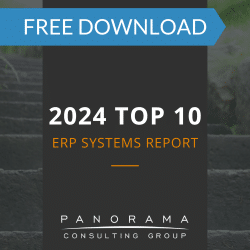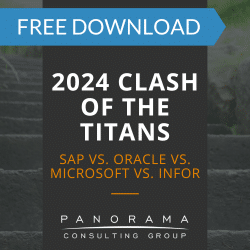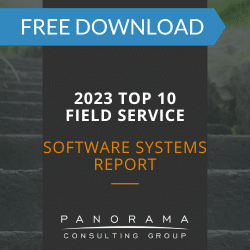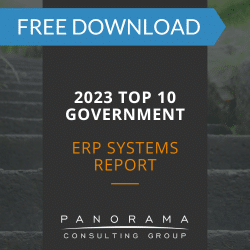The evolution of technology in the legal industry is not just a matter of convenience but a strategic imperative. As law firms navigate the complexities of the digital age, the integration of advanced technologies is becoming increasingly critical.
While we’re especially interested in trends affecting IT litigation law firms due to our ERP expert witness practice, today we’re providing an overview of technology trends in the legal industry, in general.
6 Technology Trends in the Legal Industry
1. Accelerated Adoption of Digital Technologies
Digital transformation has long been popular, but it’s accelerating at a rapid pace. This is because law firm customers are making the shift themselves. They now expect legal firms to leverage the same technology they’re seeing at their preferred retail store or supermarket.
If the legal industry can meet this demand, the potential for an increased customer conversion rate is significant. Not only are customers using modern technologies in their personal lives but they’re using these technologies to find new legal professionals and connect with existing ones.
To compete in this space, firms need to make their online presence highly visible. Digital marketing has become a cornerstone for legal departments aiming to align with contemporary consumer behaviors.
In addition, firms must personalize their customer service and optimize the user experience by streamlining legal tasks.
Technologies facilitating e-discovery, document review, and legal research are becoming increasingly sophisticated. Many ERP systems support these functions, helping law firms enhance operational efficiency and client service.
(Note: Since our team regularly works with expert witnesses, we wondered if expert witness firms were focusing on automation. While most expert witnesses are contractors, there are indeed expert witness firms that specialize in providing experts in a variety of areas. These firms use automation to assist with many of the processes this entails. So, an expert witness specializing in computer software could theoretically use an ERP system in their day-to-day work. That gives a whole new meaning to “stepping into your client’s shoes”!)
Schedule a Free 30-minute Consultation With a Digital Transformation Expert!
2. The Rise of Tech-Savvy Data Analysts and Project Managers
Workloads are increasing at law firms across the country. At the same time, budgets are tightening. This means that legal teams are looking for ways to be as productive and efficient as possible, at the most sustainable price point.
To help offset some of this burden, firms are shifting some of their legal work away from lawyers and onto indirect, non-law personnel. This is a natural move since many of these tasks require experience and expertise beyond the basic legal realm.
Take legal operations, for instance. In this sector, employees are tasked with organizing and analyzing customer data for actionable insights on how to run their firm.
To fill this role, firms are hiring specialized legal project managers and data scientists who understand how to make the best use of legal technology, such as professional services software.
Firms are also doubling down on in-house training and professional development and seeking outside consultancy guidance when necessary.
3. Emphasis on Artificial Intelligence and Automation
The intersection of artificial intelligence (AI) and automation is transforming traditional legal workflows, introducing efficiencies in document management, case analysis, and predictive modeling.
AI’s role in augmenting decision-making and operational efficiency heralds a new era in legal services, where technology complements human expertise to deliver superior outcomes.
In particular, teams are looking toward document automation to help reduce or eliminate mundane administrative work. This means focusing on legal tech solutions, like specialized ERP software, that can help them manage their documentation.
Other use cases include:
• Scanning documents to check for missing information
• Extracting insights from data to uncover evidence and build cases for software litigation
• Providing more customized client interactions
• Detecting red flags and risks within investigations
4. The Importance of Cybersecurity
In an era marked by sophisticated cyber threats, law firms must prioritize robust cybersecurity measures to protect client data and maintain trust.
Comprehensive security strategies encompass advanced encryption, secure communication platforms, and regular audits to mitigate risks and ensure compliance with stringent data protection regulations.
5. Distributed Workforce Models
Virtual legal assistants and support for distributed workforce models reflect the legal industry’s adaptation to the digital workplace. Modern and emerging technologies enable law firms to maintain productivity and continuity of service regardless of geographical constraints, fostering a flexible and resilient operational model.
According to one survey of 507 attorneys, the majority (31%) retain control over their work schedule. Some have complete control over whether they work from home, while others are required to come in to the office two or three days a week.
Legal firms are looking for new ways to accommodate this setup. This includes reevaluating the tools at their disposal and questioning whether they can support a distributed workforce model.
Many firms are investing in collaboration systems to facilitate long-distance communication. They’re also investing in advanced training solutions to help employees understand these new workflows.
The goal is to help remote or hybrid employees feel as included as the rest of the team, which ultimately improves morale and productivity.
6. Adoption of Virtual Assistants
Legal teams juggle many demands on a day-to-day basis. While virtual assistants can help offset some of these responsibilities, the technology hasn’t been savvy enough to keep pace in this industry — until lately.
Now, virtual legal assistants (VLAs) rank high on the list of current legal trends. Both sophisticated and intuitive, these systems use neural network computing models and deep learning techniques to help lawyers automate tasks.
While the chatbots can’t replace human lawyers, they can act as an extension of their services, answering internal questions and directing requests. This frees up in-house assistants to focus on work that chatbots can’t support.
What Will Digital Transformation Look Like for You?
The legal sector wasn’t an early adopter of digital technology. Yet, there is still time to catch up. The right enterprise software tools can modernize the client experience, automate manual tasks, and improve security measures.
Looking ahead, technology trends in the legal industry will continue to evolve. As they do, the focus will shift from modernization to transformation.
Our enterprise software consultants can help you understand your options and select the best technology for your needs. Contact us below for a free consultation.















